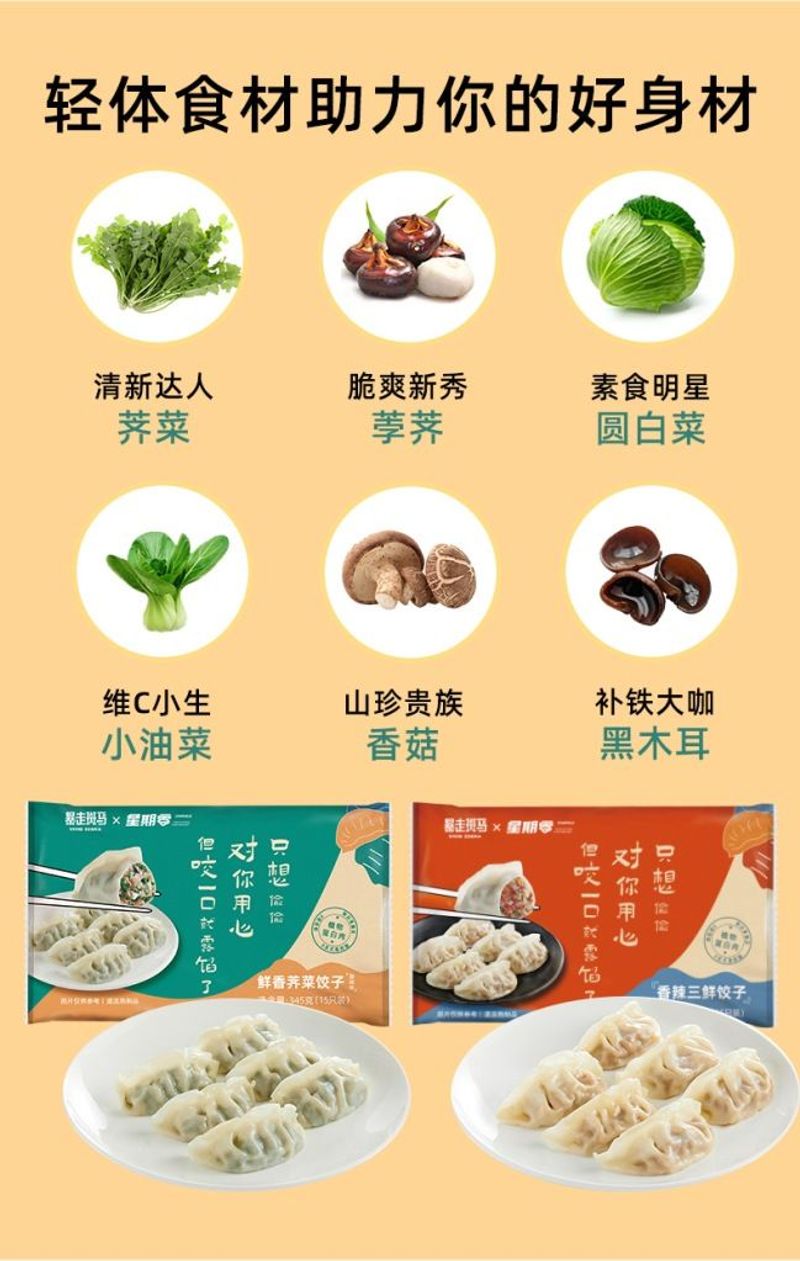icon
password
Multi-select
tags
ID
type
status
slug
summary
category
date
Author
URL
In fact, Chinese people already eat soy products more often than Westerners, so it may not be very difficult to promote plant meat.
Starfield jointly launched plant meat dumplings with Charoen Pokphand Foods’s health brand Vivid Zebra on Aug. 28, which debuted at Tmall’s Zhengda food flagship store. The product was initially available to consumers in Beijing, Tianjin and Hebei, and then expanded to sell across China. Dumplings are divided into spicy three fresh and rattan pepper shepherd’s purse two flavors, specifications are 345 grams in 2 bags, the price is 199 yuan, the promotion price is 69.9 yuan.

If you look at the original price, this plant meat dumpling can be said to be very expensive. But more comments said it was a valuable innovation. It is generally believed in the industry that plant meat-related products are often sold only in first-and second-tier cities in China, and this time they are sold throughout the country, opening up a new channel for plant meat in China.
Compared with opening up new channels of regional nature,plant meat dumplings are also an expansion of plant meat form. Similarly, in May this year, Wan Chai Ferry Pier, China’s famous dumpling brand, also launched plant meat dumplings, including “purple cabbage corn pork” and “black pepper mushroom pork” flavor, in which pork is plant meat.
Dumplings are one of the most common foods eaten by Chinese people, and they are endowed with many elements such as festivals and reunions in China. In recent years, plant meat has also become a hot topic in Chinese capital for three reasons: first, affected by the trend of plant meat in developed countries; second, young Chinese have also begun to pursue healthy food and drinks; and third, pork is very expensive in China in recent years, which has made some plant meat products no longer “more expensive than real meat.”
However, the popularity of plant meat in China is still facing huge problems. Internationally, the price and taste of plant meat have not been completely solved, but there are more problems in the Chinese market. In the past, international plant meat brands such as Impossble Foods and Beyond Meat could use hamburgers and fried chicken to quickly promote the commercialization of plant meat in North America. However, in China, these products are far from aimed at major Chinese consumers. Dumplings may be a better attempt. On the other hand, promoting plant meat through dumplings can also avoid direct competition with mature forerunners such as Impossble Foods and Beyond Meat, which is also a strategy that plant meat enterprises can consider.
This is what Starfield do. In the early days of its operation, Starfield launched Western foods such as hamburgers and burritos (which are also typical producta), but then began to focus on the Sinicization of products, such as meat Zongzi and grilled meat. Even more shocking to consumers, Starfield even launched plant meat stinky tofu with local brands in Changsha in August this year, and began to sell it in Changsha. Strictly speaking, stinky tofu is originally a plant product, and Starfield’s practice is to match stinky tofu with plant meatballs.
In addition to Starfield, other Chinese plant meat manufacturers have noticed this trend. For example, Zhen launched vegetable meat moon cakes on the Mid-Autumn Festival last year. In fact, Chinese people already eat soy products more often than Westerners, so it may not be very difficult to promote plant meat.
- Author:NotionNext
- URL:https://pandayoo.com/2020/09/11/starfield-launches-plant-meat-dumplings-maybe-china-needs-more-kinds-of-products
- Copyright:All articles in this blog, except for special statements, adopt BY-NC-SA agreement. Please indicate the source!